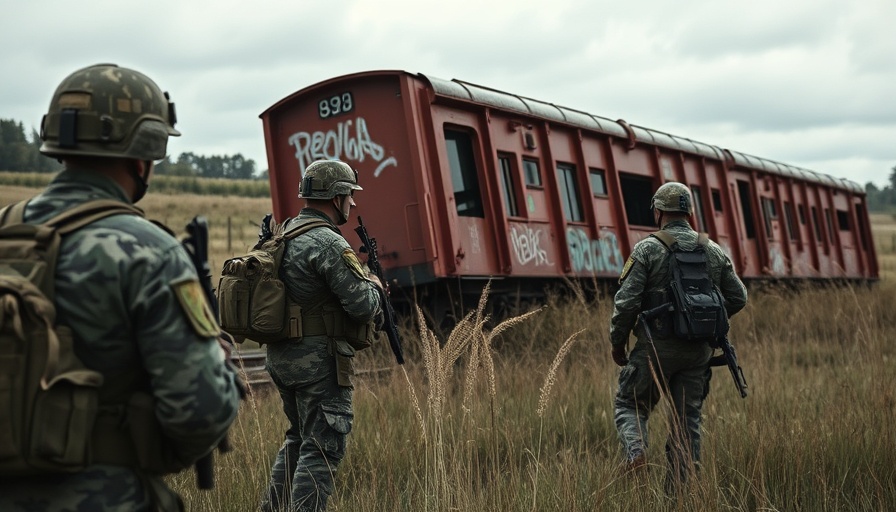
Understanding the Kaduna Train Derailment Incident
The recent train derailment in Kaduna, Nigeria, which left at least 20 individuals injured, has sparked significant concern among passengers, safety officials, and the general public. As reported by the Duran Safety Investigation Bureau, preliminary findings indicate the derailment occurred at a junction notorious for accidents, raising questions about infrastructure integrity and maintenance protocols within the country's national rail system.
The video 'Kaduna Train Derailment Leaves 20 Injured' highlights crucial insights into rail safety issues, which we are expanding upon in this article.
Immediate Response and Investigative Actions
In light of the incident, the Nigerian Railway Corporation (NRC) has taken swift action, including a commitment to refund all tickets to the passengers affected. This gesture, while financially addressing the immediate fallout, does not diminish the broader implications of safety management within Nigeria's rail transport system. The NRC’s Managing Director has emphasized the necessity for thorough investigations to determine the factors leading to this derailment and the importance of implementing measures to prevent future occurrences.
Safety Assurance and Public Reaction
Authorities have been proactive in their response, with the military and other security agencies providing immediate assistance to evacuate injured passengers safely. However, a significant component of this situation lies in public perception and anxiety regarding the safety of rail travel in Nigeria. Many citizens have expressed deep concern, recalling past incidents of derailments and thefts that have marred the reputation of the rail system.
Challenges Within the Nigerian Rail Network
Despite growing improvements in rail transport, challenges remain pervasive. The system has suffered from vandalization and theft, primarily attributed to scrap metal syndicates who exploit the aging infrastructure. While the Kaduna train track does not currently show signs of sabotage or maintenance failure, the presence of these criminal activities poses a continuous threat to rail safety. The NRC has acknowledged these challenges and is working to enhance security measures along various rail lines.
Broader Implications for National Rail Policies
This incident brings to light the urgent need for comprehensive evaluations of safety protocols across Nigeria’s entire rail infrastructure. As public transportation is vital for economic activity and connectivity, the government must prioritize enhancing safety standards, investing in modern technology, and addressing the systemic issues of theft and vandalism plaguing the rail industry.
Future Considerations for Rail Safety
Looking ahead, stakeholders must engage in discussions about the future of Nigeria’s rail system. Potential solutions include upgrading infrastructure, regular maintenance schedules, and increased funding. They also could integrate technology solutions for real-time monitoring of rail health and passenger safety. Such measures could significantly mitigate risks and restore public confidence in rail travel across the nation.
In concluding this analysis of the Kaduna train derailment incident, it is crucial to highlight that while immediate actions are being taken, systemic changes are necessary to address the root causes of safety concerns in Nigeria's rail transport. The government's ability to implement these critical improvements will play a pivotal role in shaping the future of transportation in Africa.
As we reflect on this incident, it is essential for citizens to remain engaged with transportation issues and advocate for improved safety measures. By doing so, they can contribute to a safer, more reliable rail system that benefits all of Nigeria.
 Add Row
Add Row  Add
Add 


Write A Comment